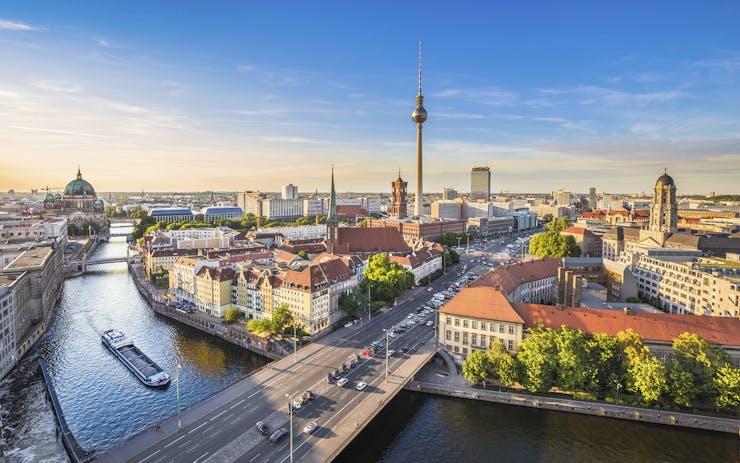Despite government budgets in European countries being stretched to the limit, newly released data show that Germany and Austria have continued to spend billions of euros annually on cannabis prohibition.
The German federal government is plowing €5.2 billion to €6.1 billion each year into repressive anti-drug measures, with the lion’s share focused on cannabis, according to data released by the country’s Left party. Charges for selling or growing cannabis make up nearly three-quarters of all registered drug offenses in the country of 80 million residents.
Berlin is particularly striking example of the heavy focus on enforcement. The German capital is generally regarded as liberal; possession of 10 to 15 grams of cannabis will be cited by authorities, but offenders generally won’t be prosecuted. Last year, however, Germany’s interior minister decided to repeal this generous rule within the area of Görlitzer Park. This tourist hot spot, where one could once easily pick up a gram and even consume in public, is now a zero-tolerance zone.
One can’t help but wonder how much longer these countries will choose to spend money chasing cannabis consumers instead of turning them into taxpayers.
Public consumption of cannabis isn’t unusual in Berlin, and dealers have moved to different spots around the park to avoid detection. That means most victims of the government’s strict enforcement are inexperienced consumers or visiting from elsewhere. They have no idea that, since 2015, a joint in Görlitzer Park has been seen by police as a serious offense. The change has confounded many local residents in the liberal district surrounding Görlitzer Park.
In the first six months after the new rule came into force, police spent 58,000 extra hours in park, according to government data, costing the Berlin taxpayers over €2 million. That’s money that could be spent on schools or seniors. And any positive effect of the measure has yet to be seen. Even the German Senate admitted that “nothing has radically changed” as a result of the millions spent on enforcement. Today, street sales are more visible than ever — and not just in and around the “Görli,” as the park is known. Illegal sales have also overflowed into a neighboring park.
In 2014, at the suggestion of Berlin’s mayor, the Kreuzberg-Friedrichshain district introduced a pilot project that regulated cannabis sales. The system made headlines around the world, but after almost two years the Federal Ministry of Health turned down the application. Instead there is now a zero-tolerance zone that saddles the already debt-ridden Berlin with significant enforcement costs.
In Austria, which has a population of 8.5 million, the government is also throwing money behind the failed war against cannabis, even though cannabis cuttings and other non-flowering plants are actually legal in the country. But as in the rest of the European Union, cannabis from adult plants that are high in THC are prohibited for non-medical use.
The Vienna-based Hanf Institut (Hemp Institute) calculated that the small Alpine republic “spends about €400 million on the persecution of some 29,000 people who commit crimes without a victim,” citing figures from the Austrian federal police.
“On average, one indictment costs €15,000, while the confiscated amount is less than 40 grams,” the institute reported. “This is the equivalent of about 100 joints — with a market value of about €320.”
Costs will almost inevitably rise this year, as the June 1 intensification of the Narcotic Substances Act has spurred intensive police actions against street sales, particularly in Vienna and other major cities.
Legalization would do more than forego enforcement costs. The Vienna Hemp Institute calculated how much potential tax revenue the Austrian state is missing out on by maintaining a prohibitionist policy and found it amounted to an annual loss of about €600 million — and that’s based only on the amount of cannabis confiscated by the police, which is only a fraction of the market.
With government strapped for cash and many police agencies understaffed, one can’t help but wonder how much longer these countries will choose to spend money chasing cannabis consumers instead of turning them into taxpayers.






